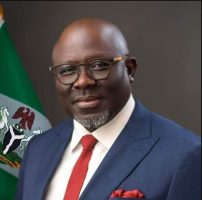By Admin
Despite Nigeria’s rising external debt burden, some financial experts have dispelled fears of possible default in repayment saying that the current N49trn external debt burden is still sustainable.
The experts made the observation at the Capital Market Solicitors Association, CMSA, 2023 Annual Business Conference tagged “Recent Developments in Sub-Saharan Africa Sovereign Debt: Implications for Nigeria.”
Speaking at the event, Chief Economist & Head of Research, Middle East & Africa, Standard Chartered Bank, Razia Khan noted that unlike the case of some African countries which are currently at risk of default in their sovereign debt obligations, Nigeria’s debt profile poses no immediate dangers to its economic growth projections.

“Its been a rough year for many African economies, especially with higher global interest rate and many other factors posing a possible default threat to them but the outlook for Nigeria is still positive. Nigeria’s current external debt is not necessarily a problem for now and that is a good thing,” she said.
Razia however cautioned that Nigeria needs to lower its fiscal deficit, ensure less crowding out, and pursue a transparent forex policy reform to determine the interest rate environment. “It will be good to clarify the point where Nigeria’s reserve is currently. Initial perception is that Nigeria has enough reserve to repay external debt commitment, but that perception is fast changing and the government has to be transparent about the current reserve value to restore investors’ confidence” she said.

Also speaking at the event, Director General of Debt Management Office, DMO, Ms Patience Oniha assured that Nigeria’s external debt repayment timelines are well spaced and doesn’t not immediately pose any danger of default.
“Talking about external debt and borrowing let me clarify that this year’s budget has room for a new external borrowing of about N1.7trn. Our debt portfolio is well managed and spaced so that it does not pose any danger of default to our creditors,” she said.
Chairman of Capital Market Solicitors Association, Chike Obianwu also assured that there is nothing wrong with the Nigerian government having debts, and pointed out that what is important is that the debt is sustainable.
‘It all boils down to sustainability. The question is whether the government is able to meet its obligation on sovereign debt as the occasion arises. As long as we keep our economy open for businesses to thrive and for foreign investments to come in, and for public revenue to rise from collecting taxes and stabilise our production of crude oil, our debt profile is not a big deal,” he said.






